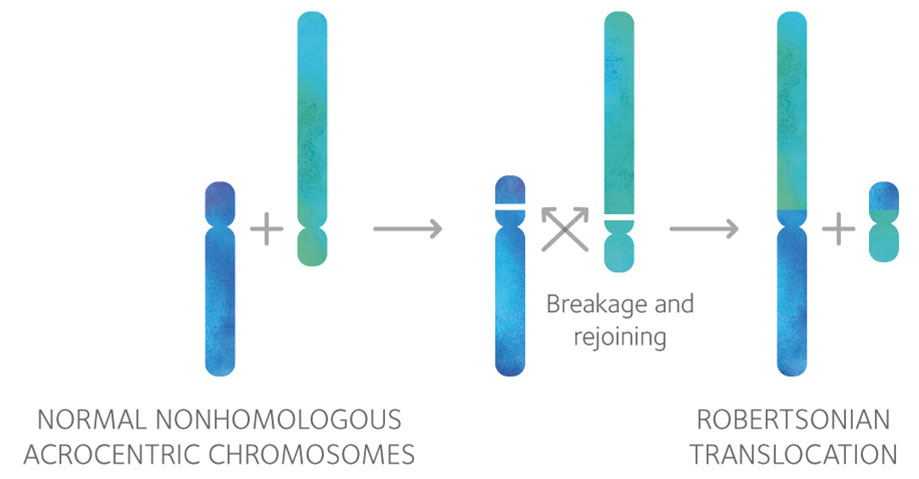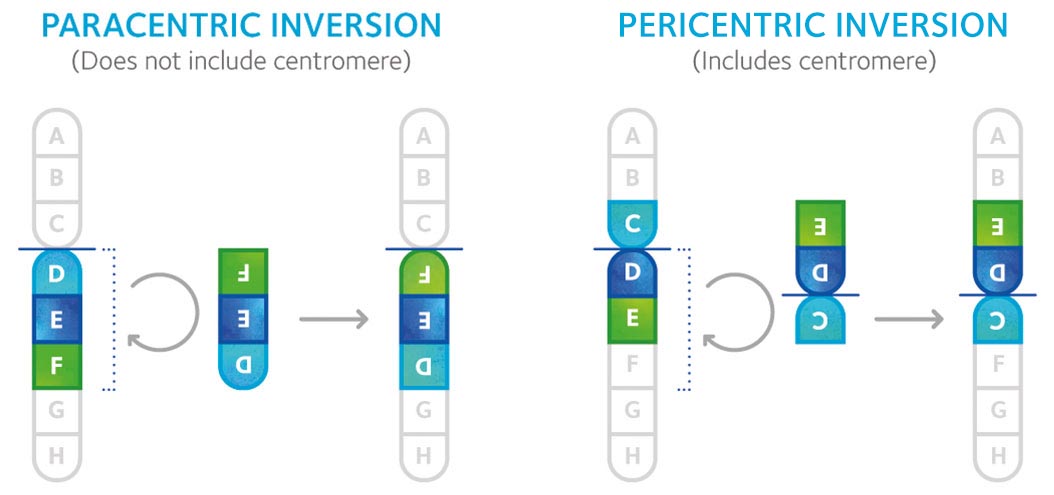
PGT-SR
Right Embryo
A genetic test designed to detect inherited rearrangements
and increase the chance of a successful pregnancy


PGT-SR
Right Embryo
A genetic test designed to detect inherited rearrangements and increase the chance of a successful pregnancy
What is PGT-SR?
Chromosomal rearrangements are changes from the normal size or arrangement of chromosomes, which are the structures that hold our genetic material. People with chromosome rearrangements are at an increased risk of producing embryos with the incorrect amount of genetic material, which typically do not lead to a successful pregnancy.
For people with a chromosomal rearrangement, PGT-SR, or preimplantation genetic testing for chromosomal structural rearrangements, can be performed to improve the chance of establishing a healthy pregnancy. PGT-SR involves testing embryos created through in vitro fertilization (IVF) and then transferring only normal embryos. PGT-SR was formerly known as PGD, preimplantation genetic diagnosis.
Who is PGT-SR for?
PGT-SR is appropriate for people who have a chromosome rearrangement, and thus are at risk of creating embryos with the incorrect chromosome number or structure. You may consider PGT-SR for chromosome rearrangements if you had a child or pregnancy with a chromosome rearrangement or if you or your partner are a carrier of an:
- Inversion
- Reciprocal translocation
- Robertsonian translocation
How it works
Chromosome rearrangements can be inherited or can happen spontaneously. Many carriers of balanced chromosome rearrangements are healthy and are unaware of their carrier status until they try to have children.
Carriers of balanced rearrangements are at risk for producing embryos with the incorrect amount of chromosomal material, which typically do not lead to a successful pregnancy. PGT-SR can help identify embryos with the correct amount of chromosomal material that are most likely to lead to a successful pregnancy and healthy live birth.
Reciprocal Translocations
Reciprocal translocations occur when pieces of genetic material break off from two different chromosomes and swap places. People that carry a balanced translocation can create embryos that have either the same balanced translocation, the unbalanced form of the translocation (where there is a gain or loss of chromosomal material), or a completely normal set of chromosomes.
If one parent is a carrier of a reciprocal translocation, about 80% of resulting embryos will contain an incorrect amount of genetic material.


Robertsonian Translocations
Robertsonian translocations occur when two chromosomes join together to form one large chromosome, giving an overall chromosome count of 45 instead of 46. This pairing occurs most commonly between chromosome numbers 13/14 and 14/21, and usually results in conditions such as Translocation Down syndrome, trisomy 13, or uniparental disomy (UPD).
Inversions
Inversions are chromosome rearrangements that involve only one chromosome. In an inversion, a segment of a chromosome is flipped and reinserted upside down. People with an inversion may create embryos with missing or duplicated segments of chromosomes.

The PGT-SR Process

CooperSurgical offers several different technologies for PGT-SR for chromosomal rearrangement depending on the specific case and provider preference. The majority of rearrangement cases:
- Require no extra test preparation
- Require no extra family member testing
- Can have 24-chromosome PGT-A testing added on at no additional charge*
*Exclusions apply
PGT-M/SR EXPERIENCE
CooperSurgical is the pioneer and worldwide leader of PGT-M/SR. Our experts have over a 100 years of combined PGT-M experience and global expertise in providing accurate results – highlighted by our ability to accept the most complex of cases.

